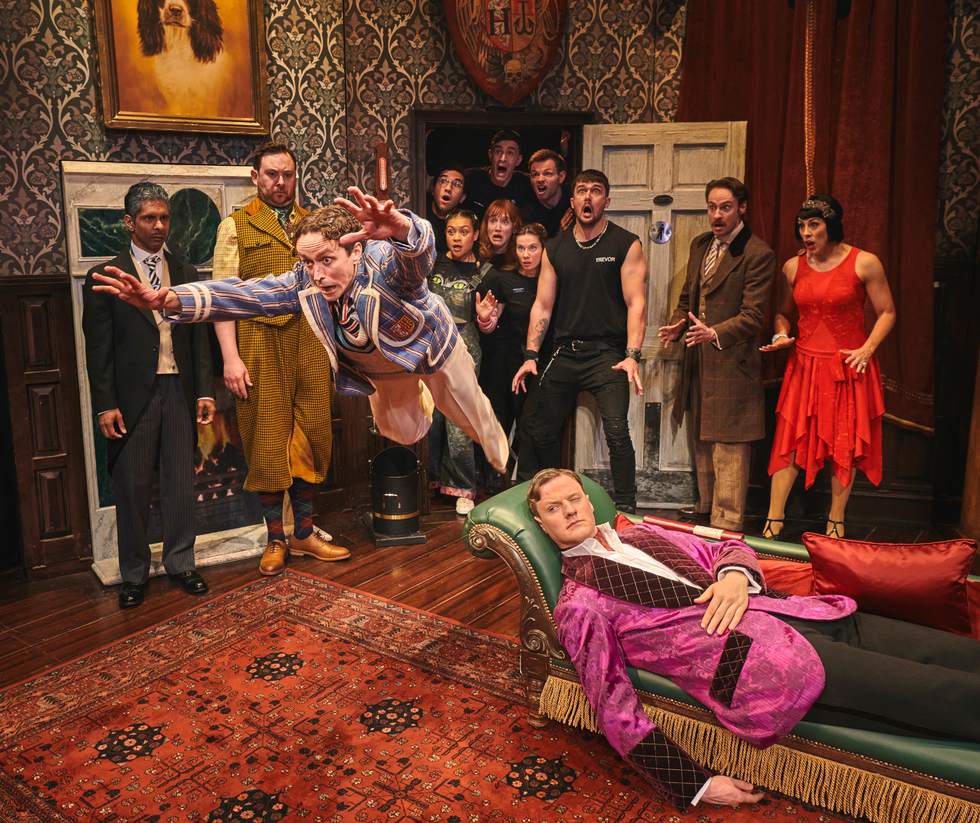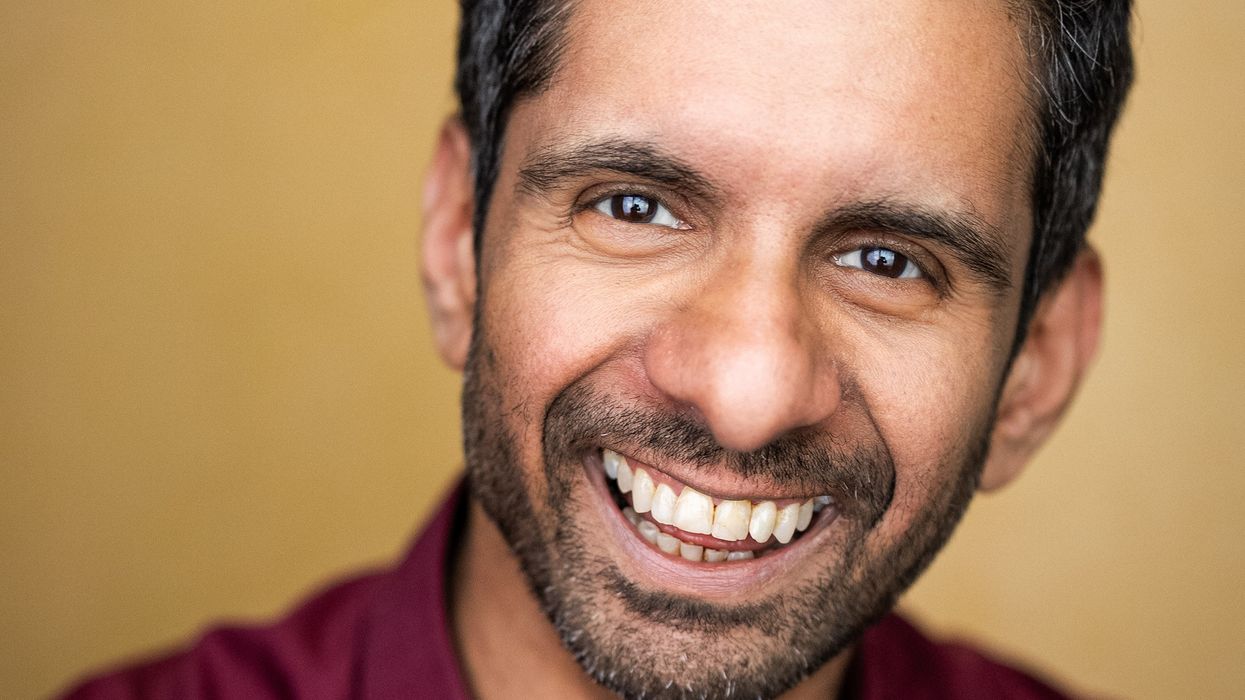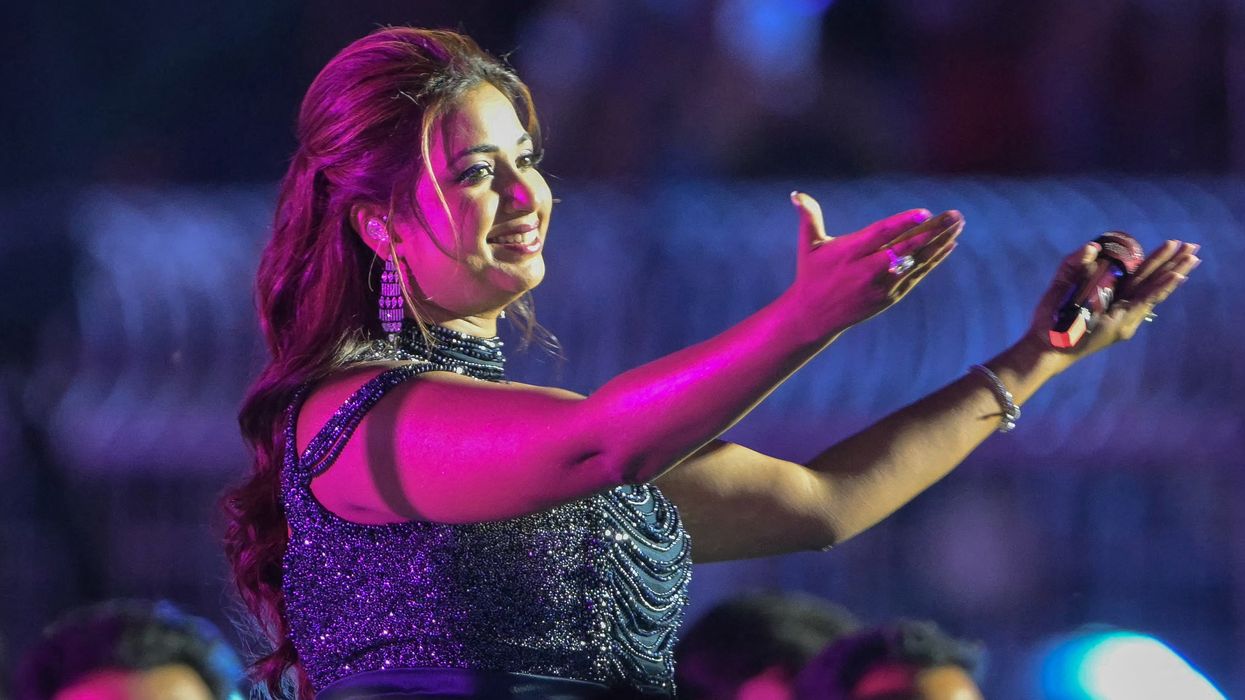AN ASIAN actor in a hit play has spoken of the joy of making audiences laugh as the show is now in its 11th year.
South Asian actor Mitesh Soni plays Dennis/Perkins the Butler in The Play That Goes Wrong at London’s Duchess Theatre, where it was performed for the 4,001st time in June.
The award-winning comedy tells the story of a classic whodunnit, with a murder at a country manor and an inspector on the trail of the culprit.

But when the accident-prone Cornley Drama Society attempts to stage the tale, everything that could possibly go wrong does. Sets collapse, lines are forgotten and cues are missed, yet the cast battle on to the final curtain with chaotic and hilarious results.
“It’s a real privilege. The play has been running in the West End for 10 years. I’m part of the 11th cast, and it has won so many awards,” Soni told Eastern Eye. “It’s a worldwide hit – it’s on in London, New York and Spain.
To be part of that is a real joy, specially making people laugh. What I enjoy most is hearing the audience laugh. Even though we know what’s coming, they don’t. When the set falls apart or when someone enters at the wrong time, the audience cries with laughter. That makes it fun for us, because they are really engaged while we still tell the classic whodunnit story.”
Soni explained why the play resonates with audiences, year after year. “The story is simple – a classic murder mystery – but everything goes wrong. Audiences can switch off and enjoy it. It works for tourists, families, schools, and young people seeing this kind of theatre for the first time.”
Laughter is a universal language and transcends borders, he said.
Soni attributed the appeal of the play to its witty script as well as its physicality.
Every stumble, crash, and calamity must appear spontaneous, but in reality, it is tightly rehearsed, he said.
“The challenge is making things look like they’ve gone wrong without real danger. Much of it is choreographed – fights, falls, injuries. We have to make sure it’s safe while looking chaotic. We learn techniques, like how to trap a hand in a door or bang a head against a wall safely,” Soni said.
Directed by Mark Bell and written by Henry Lewis, Jonathan Sayer and Henry Shields, the show faces the challenge of keeping things fresh. For actors stepping into well-known roles, comparisons are unavoidable.
“I was nervous when I knew the original actor, who created the role, came to watch. But I can’t let that affect me. I have to play my own version. Every actor brings something different, and that keeps the show fresh,” Soni said.
Some theatre-goers return 20 times just to see how a new line-up changes the chemistry of the show.
Soni said, “It’s about playing truthfully in the moment. With comedy, you must allow the audience in – let them laugh, before continuing. Even in the serious parts, you must tell the story clearly. Without the story, it would just be chaos. The audience needs to be invested in the mystery while also laughing.”
Soni, who trained at the Guildford School of Acting, described what his Asian heritage means in the industry.
“If south Asians want to get into acting, I would say two things: you’ve got to really love it, and you’ve got to be able to handle rejection. It’s a tough business. You’ll get a hundred ‘no’s’ for every ‘yes’. If you can’t cope with that, it’s not the right career,” he said.
“I still find rejection hard, but I know I love what I do. It’s not about fame or money. I also feel a responsibility as a south Asian actor. I’m one of the few who has played this role. Visibility matters. If a young south Asian person sees me on stage and feels inspired to try acting, then I’ve done my job. We’re not just doctors, lawyers or engineers – we’re in the arts too.”
But he said aspiring young actors should also to be pragmatic.
“I’d also say: have a second job on the side, so you can support yourself while waiting for acting work.”
*The Play That Goes Wrong will run at the Duchess Theatre until August 2026.





